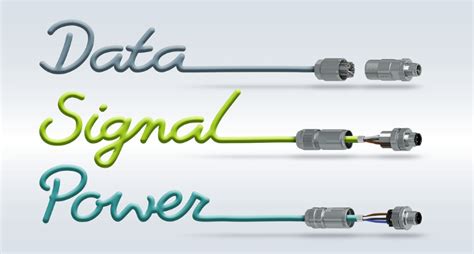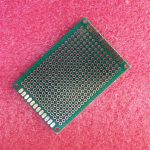Introduction to Connector Reliability
Connectors play a critical role in ensuring reliable data transmission and power delivery in a wide range of electronic devices and systems. The reliability of connectors directly impacts the overall performance, durability, and user experience of these products. Two commonly used connector types are RJ45 (Registered Jack 45) and Mini I/O (Input/Output). In this white paper, we will compare the reliability aspects of RJ45 and Mini I/O connectors, evaluating their strengths and weaknesses in various applications.
Importance of Connector Reliability
Connector reliability is essential for several reasons:
- Uninterrupted data transmission and power delivery
- Prolonged device lifespan and reduced maintenance costs
- Consistent performance in harsh environments
- Minimized downtime and improved user experience
Factors Affecting Connector Reliability
Several factors influence the reliability of connectors:
- Materials and construction quality
- Contact design and Plating
- Mating cycles and durability
- Environmental factors (temperature, humidity, vibration, etc.)
- Application-specific requirements (data rate, power handling, etc.)
RJ45 Connectors
Overview and Applications
RJ45 connectors, also known as 8P8C (8 Position 8 Contact) modular connectors, are widely used in Ethernet networking applications. They are commonly found in CAT5e, CAT6, and CAT6A cables for connecting computers, routers, switches, and other network devices.
Reliability Features
-
Robust construction: RJ45 connectors are made of durable plastic materials, such as polybutylene terephthalate (PBT) or polycarbonate (PC), which provide good mechanical strength and resistance to wear and tear.
-
Gold-plated contacts: High-quality RJ45 connectors often use gold-plated contacts, which offer excellent electrical conductivity, corrosion resistance, and durability. Gold plating ensures reliable connections even after multiple mating cycles.
-
Locking mechanism: RJ45 connectors feature a locking tab that secures the connection and prevents accidental disconnection. This locking mechanism enhances the reliability of the connection, especially in environments subject to vibration or movement.
Reliability Challenges
-
Limited mating cycles: RJ45 connectors are typically rated for 500 to 1,000 mating cycles. While this is sufficient for most networking applications, it may not be adequate for devices that require frequent plugging and unplugging.
-
Susceptibility to damage: The locking tab on RJ45 connectors can be prone to breakage if not handled carefully. A broken locking tab compromises the security of the connection and may lead to intermittent connectivity issues.
Mini I/O Connectors
Overview and Applications
Mini I/O connectors are compact, high-density connectors designed for a wide range of applications, including consumer electronics, medical devices, Industrial Automation, and automotive systems. They offer versatile pin configurations and can be used for data transmission, power delivery, and signal control.
Reliability Features
-
Compact and durable design: Mini I/O connectors have a small form factor, which allows for high-density packaging and space savings. Despite their size, they are designed to withstand the rigors of demanding environments, with robust construction and materials.
-
Diverse contact options: Mini I/O connectors offer various contact options, such as stamped and formed, machined, and spring-loaded contacts. These options cater to different reliability requirements, ensuring consistent performance and long-term durability.
-
High mating cycles: Many Mini I/O connectors are rated for 5,000 to 10,000 mating cycles, making them suitable for applications that require frequent plugging and unplugging. This high mating cycle rating ensures reliable performance over the lifespan of the device.
Reliability Challenges
-
Sensitivity to misalignment: Due to their compact size, Mini I/O connectors may be more sensitive to misalignment during mating. Proper connector design and guidance features can help mitigate this issue, ensuring reliable connections.
-
Contact wear: In applications with high mating cycles, the contacts in Mini I/O connectors may experience wear over time. Proper contact materials and plating can help minimize wear and maintain reliable connections throughout the connector’s lifespan.

Reliability Comparison: RJ45 vs. Mini I/O
Mating Cycles and Durability
| Connector Type | Typical Mating Cycles |
|---|---|
| RJ45 | 500 – 1,000 |
| Mini I/O | 5,000 – 10,000 |
Mini I/O connectors generally offer higher mating cycles compared to RJ45 connectors, making them more suitable for applications that require frequent plugging and unplugging.
Environmental Resistance
| Connector Type | Temperature Range | Humidity Resistance | Vibration Resistance |
|---|---|---|---|
| RJ45 | -40°C to +85°C | Good | Moderate |
| Mini I/O | -55°C to +125°C | Excellent | High |
Mini I/O connectors often have a wider operating temperature range and better resistance to humidity and vibration compared to RJ45 connectors. This makes Mini I/O connectors more reliable in harsh environmental conditions.
Application Suitability
| Application | RJ45 | Mini I/O |
|---|---|---|
| Ethernet Networking | ✓ | – |
| Consumer Electronics | – | ✓ |
| Medical Devices | – | ✓ |
| Industrial Automation | – | ✓ |
| Automotive Systems | – | ✓ |
RJ45 connectors are primarily used in Ethernet networking applications, while Mini I/O connectors are versatile and suitable for a wide range of applications, including consumer electronics, medical devices, industrial automation, and automotive systems.
Conclusion
Both RJ45 and Mini I/O connectors offer reliable performance in their respective applications. RJ45 connectors are well-suited for Ethernet networking, with robust construction, gold-plated contacts, and a locking mechanism. However, they have limited mating cycles and may be susceptible to locking tab damage.
On the other hand, Mini I/O connectors provide high reliability in a compact form factor, with high mating cycles, diverse contact options, and excellent resistance to environmental factors. They are suitable for a wide range of applications that require frequent plugging and unplugging or operation in harsh environments.
When selecting a connector type for a specific application, it is essential to consider factors such as mating cycles, environmental conditions, and application requirements. By understanding the reliability features and challenges of RJ45 and Mini I/O connectors, designers can make informed decisions to ensure optimal performance and reliability in their products.
FAQ
1. What are the main differences between RJ45 and Mini I/O connectors in terms of reliability?
RJ45 connectors offer robust construction, gold-plated contacts, and a locking mechanism, making them reliable for Ethernet networking applications. However, they have limited mating cycles and may be susceptible to locking tab damage. Mini I/O connectors provide high mating cycles, diverse contact options, and excellent resistance to environmental factors, making them suitable for a wide range of applications that require frequent plugging and unplugging or operation in harsh environments.
2. Can Mini I/O connectors replace RJ45 connectors in Ethernet networking applications?
While Mini I/O connectors offer high reliability and versatility, they are not designed to replace RJ45 connectors in Ethernet networking applications. RJ45 connectors are specifically designed and standardized for Ethernet networks, ensuring compatibility and interoperability between devices.
3. How do I choose between RJ45 and Mini I/O connectors for my application?
When choosing between RJ45 and Mini I/O connectors, consider factors such as the application requirements, mating cycles, environmental conditions, and space constraints. RJ45 connectors are ideal for Ethernet networking applications, while Mini I/O connectors are suitable for a wide range of applications that require high reliability, frequent plugging and unplugging, or operation in harsh environments.
4. What are the typical mating cycles for RJ45 and Mini I/O connectors?
RJ45 connectors are typically rated for 500 to 1,000 mating cycles, while Mini I/O connectors often have a higher rating of 5,000 to 10,000 mating cycles. The higher mating cycle rating of Mini I/O connectors makes them more suitable for applications that require frequent plugging and unplugging.
5. How do RJ45 and Mini I/O connectors compare in terms of environmental resistance?
Mini I/O connectors generally offer better environmental resistance compared to RJ45 connectors. They have a wider operating temperature range and better resistance to humidity and vibration. This makes Mini I/O connectors more reliable in harsh environmental conditions, such as those found in industrial automation and automotive applications.






Leave a Reply